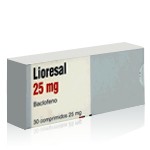Recognizing and Treating Head Injuries


A head injury can be a frightening experience, as it involves some of the most vital areas of the body, including the brain, skull, and scalp. The severity of a head injury can range from mild to life-threatening, depending on factors such as the type of injury, the extent of the damage, and how quickly medical attention is received. In this article, we’ll explore what head injuries are, how to identify serious cases, the common signs that a head injury may be dangerous, and how head injuries are treated. Additionally, we will discuss the role of medications like Lioresal in managing certain symptoms or complications following a head injury.
What is a Head Injury?
A head injury refers to any harm or damage to the head, which can involve the scalp, skull, or brain. These injuries can occur from various causes, such as accidents, falls, sports activities, violence, or even during everyday tasks. Head injuries are categorized into two main types: closed head injuries and open head injuries.
- Closed head injuries occur when the skull remains intact, but the brain may be affected. These include concussions or contusions (bruising of the brain).
- Open head injuries involve a break in the skull, allowing external objects to penetrate and potentially damage the brain tissue. These injuries are often more severe and can result in bleeding, infections, or other complications.
The brain, being the control center for body functions, is highly sensitive, and any injury to this area can have significant consequences. Whether a head injury is classified as mild or severe, it’s crucial to evaluate it immediately to prevent complications and to ensure proper care.
How Do I Know if a Head Injury is Serious?
Not all head injuries are serious, but distinguishing between a mild and a severe head injury can be difficult without medical knowledge. Many individuals experience a bump or minor blow to the head and may be concerned about the severity, especially if they don’t experience immediate symptoms. However, even mild trauma to the head can result in complications such as concussions, which require prompt attention.
When determining if a head injury is serious, it’s important to consider the symptoms that follow the injury. For instance, if a person loses consciousness, even for a brief moment, or exhibits confusion, memory loss, or difficulty speaking, it could be a sign of a more serious injury. Any sudden change in behavior, cognitive function, or physical abilities after a head injury should be evaluated by a healthcare provider. Additionally, the force of the impact plays a role in determining the seriousness — if the blow was severe, the risk of significant brain injury is higher.
It's also important to note that some symptoms may appear immediately, while others could develop over time. This delay is why monitoring the person for several hours after the injury is crucial.
What Are Five Danger Signs of a Head Injury?
There are several red flags to watch for following a head injury that could indicate a serious condition requiring urgent medical attention. Recognizing these danger signs can save lives by ensuring the person receives the necessary care as soon as possible.
- Loss of Consciousness: If the person loses consciousness, even briefly, it can indicate a severe injury. A loss of consciousness is often a sign that the brain has experienced significant trauma, and medical evaluation is needed immediately.
- Severe Headache or Neck Pain: A headache that is particularly intense or persistent after a head injury could be a sign of a more serious underlying issue, such as bleeding in or around the brain. Likewise, neck pain following a head injury could suggest potential spinal involvement.
- Nausea and Vomiting: These symptoms, particularly when they occur after a head injury, can be a sign of a concussion or more severe brain injury. It may indicate swelling in the brain, which requires immediate attention.
- Confusion or Memory Loss: If the person is unable to remember the events before or after the injury, or if they become disoriented or confused, it may suggest brain injury. Severe confusion, especially combined with agitation or abnormal behavior, warrants urgent medical care.
- Seizures or Convulsions: Seizures following a head injury are a serious sign of brain damage or swelling and require immediate medical intervention. Seizures may be accompanied by other neurological symptoms, such as loss of consciousness and abnormal movements.
If any of these symptoms occur, it’s essential to seek medical help right away. Even if the symptoms seem mild at first, they can worsen over time, and early intervention is key to preventing long-term damage.
How Can You Treat a Head Injury?
Treatment for a head injury depends on its severity. For minor head injuries, especially those with no symptoms of concussion or bleeding, treatment may simply involve rest and monitoring. However, any indication of a more serious injury, such as a suspected concussion, skull fracture, or brain bleed, requires immediate medical care.
The primary approach for head injury treatment generally involves the following steps:
- First Aid: For minor injuries, if the person is conscious, they should be kept calm and reassured. Applying ice to the affected area can help reduce swelling or bruising. If the person experiences a loss of consciousness or severe symptoms, they should not be moved until medical help arrives.
- Emergency Care: In more serious cases, such as when bleeding or a skull fracture is suspected, it’s crucial to get the person to a hospital immediately. Emergency medical staff will conduct a thorough evaluation, including physical exams, CT scans, or MRIs to assess the extent of the injury. If necessary, surgery may be required to address bleeding, skull fractures, or other complications.
- Observation: Even after a mild injury, the person should be closely monitored for the next 24-48 hours. This ensures that any changes in symptoms or the development of complications are detected early.
- Medication: Pain management and controlling swelling or inflammation are key components of head injury treatment. Over-the-counter pain relievers such as ibuprofen or acetaminophen may be used for minor pain. However, aspirin should be avoided, as it can increase the risk of bleeding. In cases of severe head injuries, medications to control intracranial pressure, seizures, or inflammation may be used.
The Role of Lioresal in the Treatment of Head Injuries
Lioresal (baclofen) is a medication primarily used to treat muscle spasticity and conditions that cause muscle tightness, such as multiple sclerosis and spinal cord injuries. However, its role in head injury treatment is more specialized and is often prescribed when muscle spasticity or complications such as muscle rigidity arise as a result of the injury.
In the context of head injury recovery, Lioresal may be used if the person develops symptoms like spasticity, abnormal muscle tone, or stiffness, which can occur in the aftermath of traumatic brain injuries. These symptoms can hinder mobility, comfort, and rehabilitation efforts. By relaxing the muscles and reducing spasticity, Lioresal can help improve the patient’s physical function and support their recovery process.
However, the use of Lioresal is typically part of a broader treatment plan that includes rehabilitation and physical therapy. It’s important for patients to consult with their healthcare providers to determine if Lioresal is appropriate for their specific case and to monitor for any side effects, such as drowsiness or dizziness.
Conclusion
Head injuries can vary greatly in severity, and it’s essential to understand the symptoms and warning signs of more serious conditions. Early detection and intervention are crucial to preventing long-term damage and ensuring proper recovery. Whether the injury is minor or severe, it’s important to monitor the individual carefully and seek medical care when necessary. In some cases, medications like Lioresal may be prescribed to help manage muscle spasticity and other complications that can arise following a head injury.Remember, even if the head injury seems minor, it’s always better to err on the side of caution and seek medical advice. The brain is an incredibly sensitive organ, and prompt treatment can make a significant difference in the outcome.
Medically Reviewed by Dr. Faride Ramos, MD
(Updated at Jul 21 / 2025)

